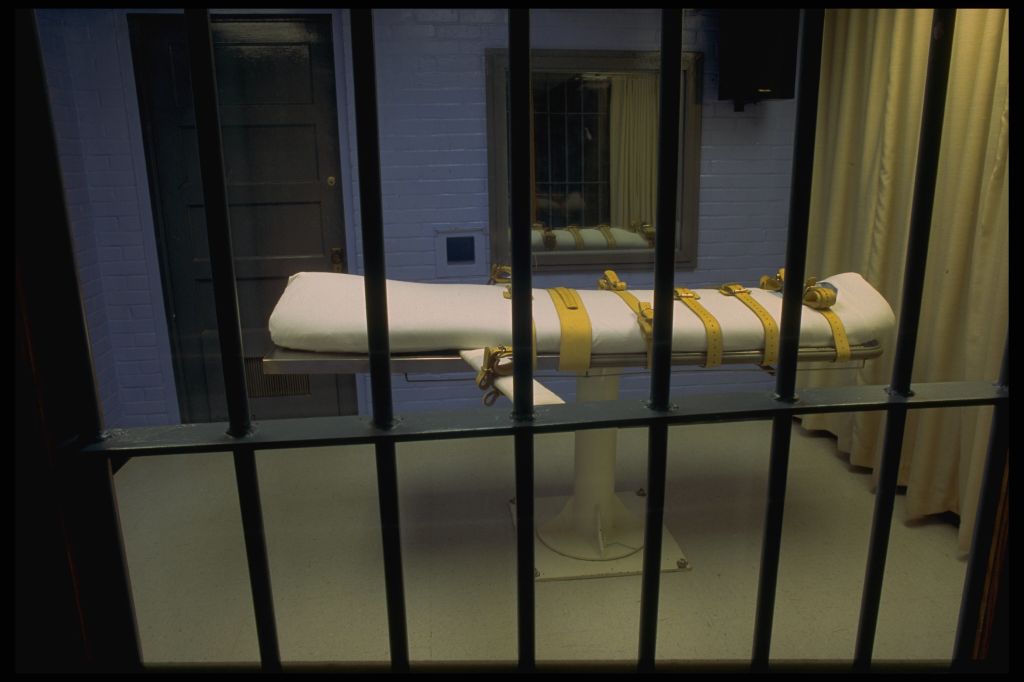Black People Experienced Botched Lethal Injections At Higher Rates, New Study Finds
Source: F. Carter Smith / Getty
Reprieve, a non-profit organization advocating against the death penalty, shed light on a troubling aspect of the controversial form of capital punishment in a new report.
According to the organization’s latest study, Black individuals have experienced botched lethal injection executions at an alarming rate compared to their white counterparts, resulting in painful prolonged executions. The organization conducted an in-depth analysis of 73 botched executions among the 1,407 lethal injection procedures carried out since 1977.
According to the report, Black people faced a staggering 220% higher odds of suffering a botched lethal injection execution compared to their white counterparts. Furthermore, the study debunked the notion that the type of lethal injection protocol used could mitigate the risk of botched executions. Whether employing a one-drug or three-drug protocol, and irrespective of the primary drug utilized (sodium thiopental, pentobarbital, or midazolam), botched executions persisted. This revelation challenges the prevailing assumption that specific protocols ensure a smoother, more humane process.
Prolonged Agony and Age Factor
Adding to the distressing findings is the prolonged agony endured by Black individuals subjected to botched executions. More than a third of the executions lasted over 45 minutes, with over a quarter enduring an hour or more. Such prolonged suffering defies the very notion of a swift and painless death, raising serious ethical concerns about the humane treatment of those sentenced to capital punishment.
Age emerged as another critical factor influencing the likelihood of a botched execution. For each additional year of age, the odds of a botched lethal injection execution increased by 6% on average.
State-Level Disparities
The study also highlighted significant disparities at the state level, with Arkansas, Georgia, and Oklahoma exhibiting troubling trends. In Arkansas, 75% of botched executions involved Black individuals, despite accounting for only 33% of all executions. Similarly, in Georgia and Oklahoma, the figures stood at 86% and 83%, respectively, underscoring the pervasive nature of racial bias in the application of capital punishment, Reprieve noted.
The research identified secrecy and haste as contributing factors to the increased rates of botched and problematic executions. The lack of transparency surrounding execution protocols and procedures, coupled with rushed timelines, exacerbates the risks faced by individuals sentenced to death, particularly those from marginalized communities.
“There are botched executions, many of them, regardless of the drug, regardless of the cocktail,” Maya Foa, the executive director of Reprieve, told NPR of the startling report. “Continuing to tinker with the machinery of death is not making this better.”
Foa added, “The analysis shows not only are we botching these executions and causing people torture more often than with many other methods,” said Foa, “But we are doing that to Black prisoners far, far more frequently than we are to white prisoners.”
As debates surrounding the ethics and efficacy of capital punishment persist, it is imperative to confront and address these systemic injustices head-on. Only through meaningful reforms aimed at eliminating racial bias and ensuring transparency and accountability can we hope to create a more just and equitable system of justice for all.
SEE ALSO:
Sleep Health: Why Black People Should Be Tracking Their Sleep
The post Black People Experienced Botched Lethal Injections At Higher Rates, New Study Finds appeared first on NewsOne.

